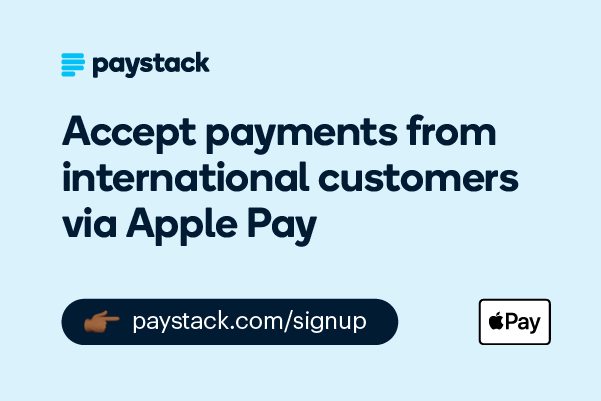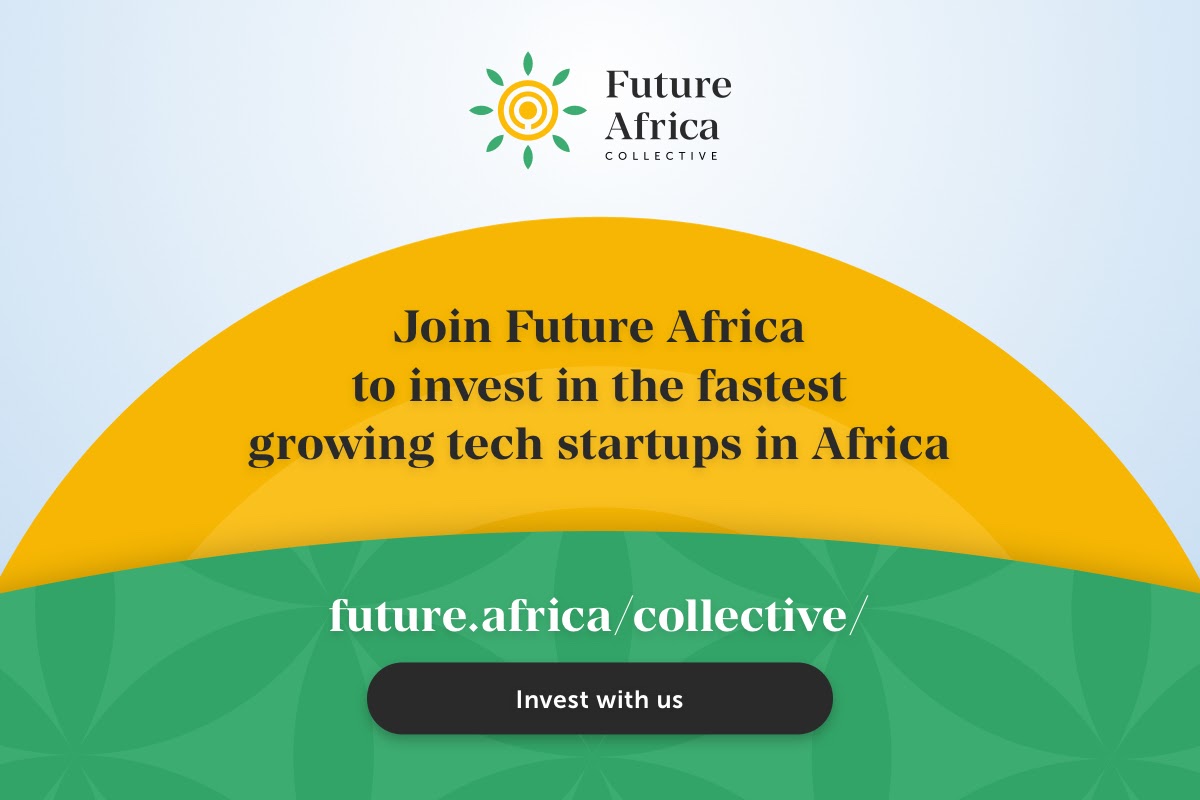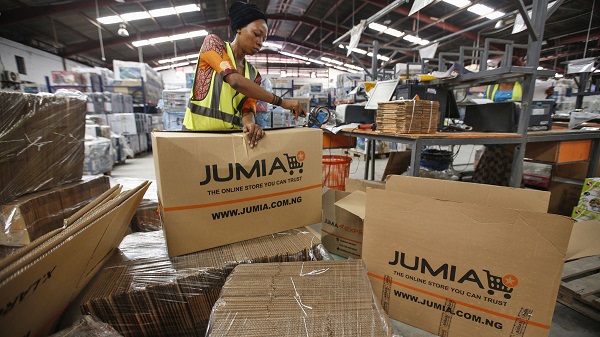
IN PARTNERSHIP WITH

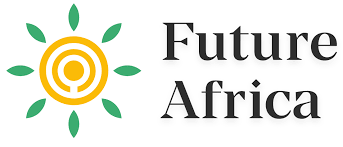

Good morning ☀️ ️
Meta wants to help you feel things. 😑
The company is developing haptic gloves which will help users touch and feel objects in the metaverse.
Sounds familiar 🤔👀
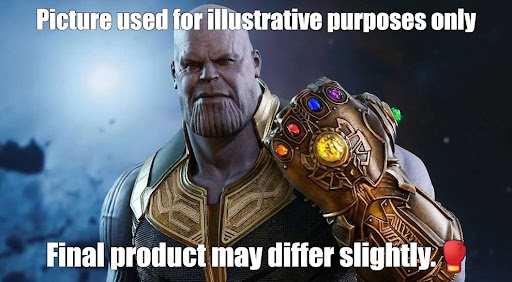
In today’s edition
- Quick Fire 🔥
- Funding fandom
- Getting NiFTy with art
- TC Insights: Funding Tracker
- Tech Probe
QUICK FIRE 🔥 WITH JACK NGARE
With over 15 years of experience across various technology and business functions, Jack Ngare is currently serving as the Managing Director of Microsoft’s Research and Development Facility (Africa Development Centre).
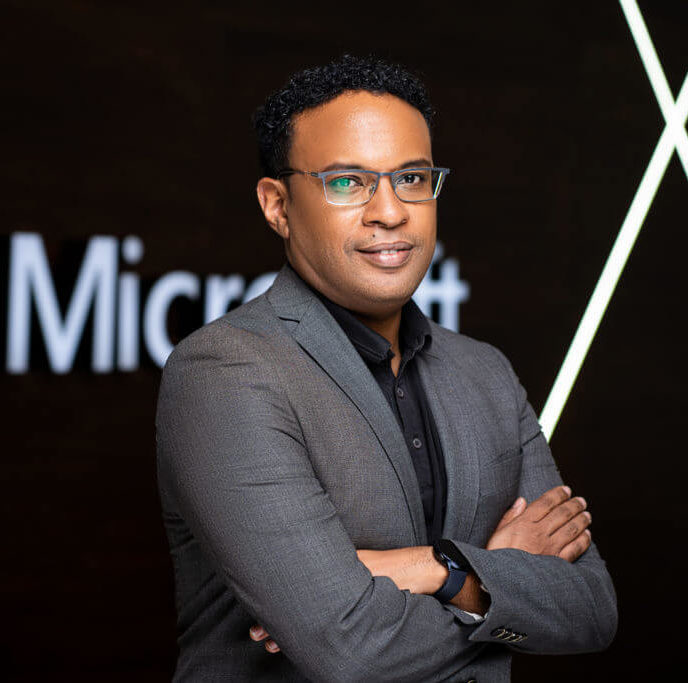
Explain your job to a five-year-old
I’m the Managing Director of the Microsoft Africa Development Center that builds, designs, and engineers some of the exciting products that Microsoft is known for such as Windows, Azure Cloud, and much more. We have over 450 people working on all sorts of exciting projects.
What’s something you wish you knew earlier in your career/life?
Well, that career growth is not always super-linear regardless of how good you are. Career growth is more of a sigmoid growth curve that is wrought with ups and downs and learnings, and you must be willing to go up again. Learn to accept the downs as part of your growth and do better.
What (singular) achievement are you most proud of?
My kids. They are the joy of my life. My work is a distant second.
What’s the most promising thing about tech in Africa?
Our people. We have talented and resourceful people who are eager to learn and execute. Our youth population is growing and we could potentially have the largest young talent pool in the world over the next decades. It goes without saying, but I believe our people will drive the powerhouses of tech in the world in the next decade.
What’s one thing you think managers can do to build an effective team?
No ego. Be a servant leader. Expect to learn from your team as they learn from you. Sorry, those are 3 things.
What’s something you love doing, but you’re terrible at. And what’s something you really do not like doing that you’re great at.
I love singing to my favorite tunes. My voice is really bad. I could break windows. I love it though. I think I have a knack for understanding other people’s work especially when it comes to code. But you will never get a bigger procrastinator than me simply because I tend to nit-pick.
FUNDING FANDOM
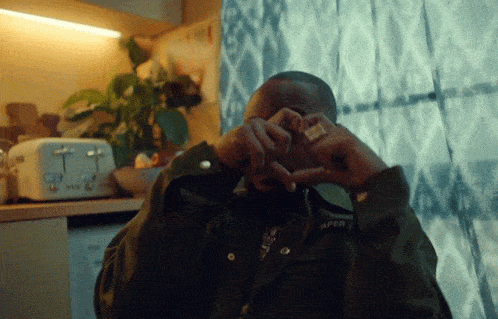
One thing that’s always been clear is that fans of Africa’s top creatives are willing and ready to fund their faves. Want proof? Then you should be online to see the fundraising craze that follows certain Big Brother housemates after they leave the Big Brother houses.
On Wednesday, Nigerian singer-songwriter, Davido, raised more than $338,000 via social media after posting his bank account information and asking fans and friends to send him a little bit of birthday cash.
But while creators—whether on Twitter, TikTok or YouTube—on the continent have strong fandoms, it’s not always been easy to translate that support into cash.
The funding divide
YouTubers earn money directly from YouTube for ads inserted on top of their videos. They are paid on a cost-per-thousand-views (CPM) basis and receive earnings when a viewer watches at least 30 seconds of a played ad or half the ad for a shorter advertisement.
Of the 10 countries with the highest CPM per video, Algeria is the only African country on the list. Algerian YouTubers receive $24.50 CPM. And, after earnings are garnered, YouTube takes a 55% cut, further reducing take-home pay.
In the US, 9-year-old Ryan Kaji made an estimated $29.5 from YouTube and an additional $200 million from branded toys and clothing.
But African creatives are making far less money from their work. Caspar Lee, South Africa’s most-watched YouTuber, earns around 10% of Kaji’s YouTube earnings per year. Nigeria’s highest-earning YouTuber, Mark Angel Comedy, earns around 12.2% of that same figure. And Uganda’s most-watched creator on YouTube, musician Eddy Kenzo, earns around 1.6% of that.
Alexandria Sahai Williams has more in Chipper Cash’s Twitter integration may revolutionise Africa’s creative hustle.
Accept international payments from your customers in the USA, UK, Canada, and 60+ countries using Pay with Apple Pay.
👉🏾Create a free Paystack account to get started.
This is partner content.
GETTING NiFTy WITH ART

Non-Fungible Tokens or NFTs have gathered quite the buzz on the continent this year.
Side-bar: Despite the misnomer, NFTs are in fact not mushrooms. They’re digital items like images, music, tweets, journalistic work, etc. One great thing about NFTs is that they can be traded on online marketplaces like Opensea.io and Niftygateway.com.
A wide canvas
For Africa, a revolution in NFTs was triggered by Nigerian artist, Osinachi, who sold NFTs worth $75,000 in just 10 days in March this year. Osinachi, who uses Microsoft Word as his canvas, was the first African artist to be featured at British auction house Christie’s 1-54 Art Fair, with his Different Shades of Water collection.
South African artist Norman O’Flynn also sold the country’s first-ever NFT for around $35,000 in March; and in April, Kenyan marathon runner Eliud Kipchoge sold highlights of his career as NFTs for $50,000.
Even though the canvas for NFTs is wide and booming, with the market exceeding $10 billion in the third quarter of 2021 alone, not everyone wants a part of it.
The Ghanaian artist who is experimenting
Three weeks ago, Nyahan Tachie-Menson sold her first NFT art “Fantastical Argos” for 1ETH—$4,140. Yet she doesn’t see herself as an NFT artist.
Tracing her artistic career, Tachie-Menson started with traditional art styles like painting and drawing before going into digital animation and developing an interest in sculpting two years ago. She didn’t have any intention of getting into NFTs, but when Curatorial Associate at Art X Lagos, Maurice Chapot, reached out to her to join Art X’s inaugural NFT project, she agreed because she also wanted to try out something new.
Read her story on Ghanaian artist Tachie-Menson doesn’t want to be an NFT artist.
Join the Future Africa Collective – an exclusive community of investors who invest in startups building the future. With a $300 quarterly fee, you get access to invest a minimum of $2,500 in up to 5 high-growth African startups.
This is partner content.
TC INSIGHTS: FUNDING TRACKER
This week, South African fintech company Ozow raised $48 million in a Series B round to further develop its product offering and expand into new markets. The round was led by Tencent with the participation of Endeavor Catalyst and Endeavor Harvest Fund.
Here are the other deals for the week:
- Nigerian e-health startup DrugStoc secured $4.4 million in Series A funding from Africa HealthCare Master Fund (AAIC). Other investors include Chicago-based venture firm Vested World and the German Development Bank (DEG).
- NFTfi, a South African platform for collateralized loans, raised $5 million in a seed round led by 1kx with the inclusion of Ashton Kutcher’s Sound Ventures, Maven 11, Scalar Capital, Kleiner Perkins and others participating.
- Shuttlers, a Nigerian logistics startup, raised $1.6 million from VestedWorld. Interswitch, Rising Tide Africa, Launch Africa, EchoVC, CMC 21 & Alsa, ShEquity, Five35, Consonance Investment, CcHub Syndicate, Sakore, and Nikky Taurus also participated.
- South African open-source intelligence company, VoxCroft Analytics received $2 million in Series A funding from Knife Capital
- Egyptian fintech KIWE raised an undisclosed amount in a round led by dfin Holding with participation from EFG Hermes, Marakez for Development, and a group of angel investors.
- Nigeria-based digital compliance and security company, Identitypass raised $360,000 from CcHub, Midlothian Angel Network, D Global Ventures Fund, and other angel investors.
- Educatly, an Egyptian ed-tech platform closed a $1 million pre-seed round that Enterprise Ireland, Falak Startups and other angel investors participated in.
- BlinkApp, an Egyptian mobility startup raised a six-figure pre-seed funding round led by investors located in the United Arab Emirates (UAE) and Saudi Arabia.
- South African insurtech startup, Root got $3 million from Invenfin, Base Capital, Savannah Fund, P1 Ventures, Luno, and FireID, as well as a select group of high impact angel investors
- AURA, a security and medical response marketplace based in South Africa secured $4 million in a round co-led by MultiChoice Group (MCG), KLT Holdings and Buffet Investments.
That’s all we’ve got this week.
Follow us on Twitter, Instagram, and LinkedIn for more updates on funding deals.
Save 50% on transaction costs with instant, linked-account payments. Ideal for wallet funding, loan repayments, collections, and e-commerce checkouts.
Learn more here.
This is partner content.
TECH PROBE
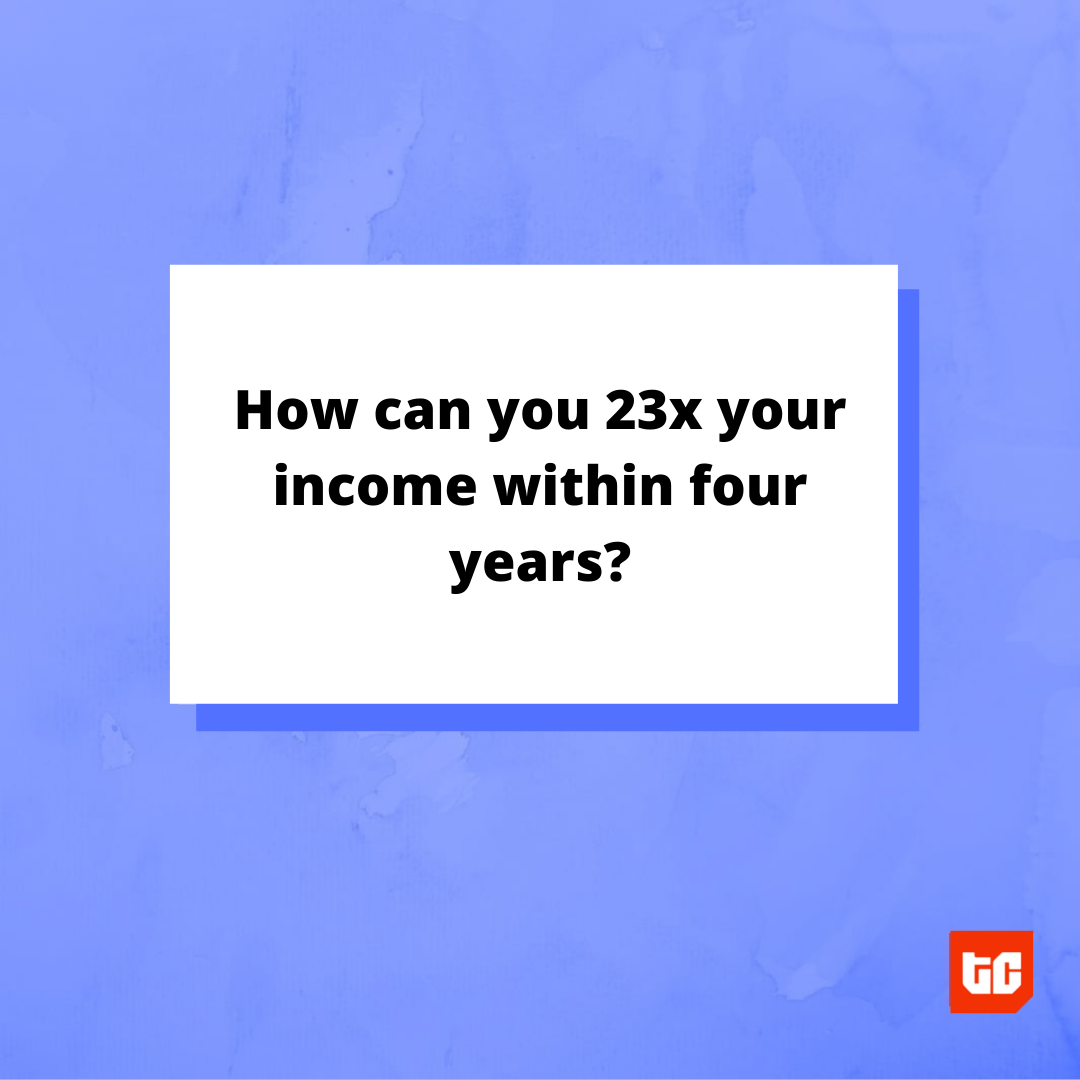
On Monday, we wanted to know how you think you can multiply your income. Here are some of the most interesting responses we got:
- “BetNaija or BetKing, 23 odds,” Timi Odueso (@timiodueso, TC Channel)
- “Buy cheap land, plant cashew, and thank me in 4 years’ time,” Ikenna (@marlianinvestor, Instagram).
- “Use the first year to learn about stocks, crypto, and real estate. Use the remaining 3 years to aggressively invest in those 3,” Aroyewun Adedamola (@damola.aroyewun, Instagram)
- “Crypto! Crypto! Crypto! But be ready for some sprinkles of heart attack sha😂,” Bushirah Omolara (@poshpearl9ja, Instagram)
JOB OPPORTUNITIES

Every week, we share job opportunities in the African ecosystem.
- Big Cabal Media – Software Developer, Talent Operations Analyst – Lagos, Nigeria
- Lemonade Finance – Junior Product Designer – Nigeria
- Lemonade Finance – Customer Support Specialist – Kenya/Ghana/Nigeria (Remote)
- Tix.Africa – Frontend Engineer, Backend Engineer – Africa
- Fluidcoins – Product/Growth Marketer – Nigeria (Remote)
There are more opportunities here. If you’d like to share a job opening or an opportunity, please fill this form.
What else we’re reading
- Kredi Bank wants to usher Nigerians into the future of banking.
- In line with MTN’s intention to leave the Middle East completely, the telco group has now pulled out of Yemen.
- There are over 29,000 pieces of junk floating around in space and Russia just added 1,500 pieces to it.







